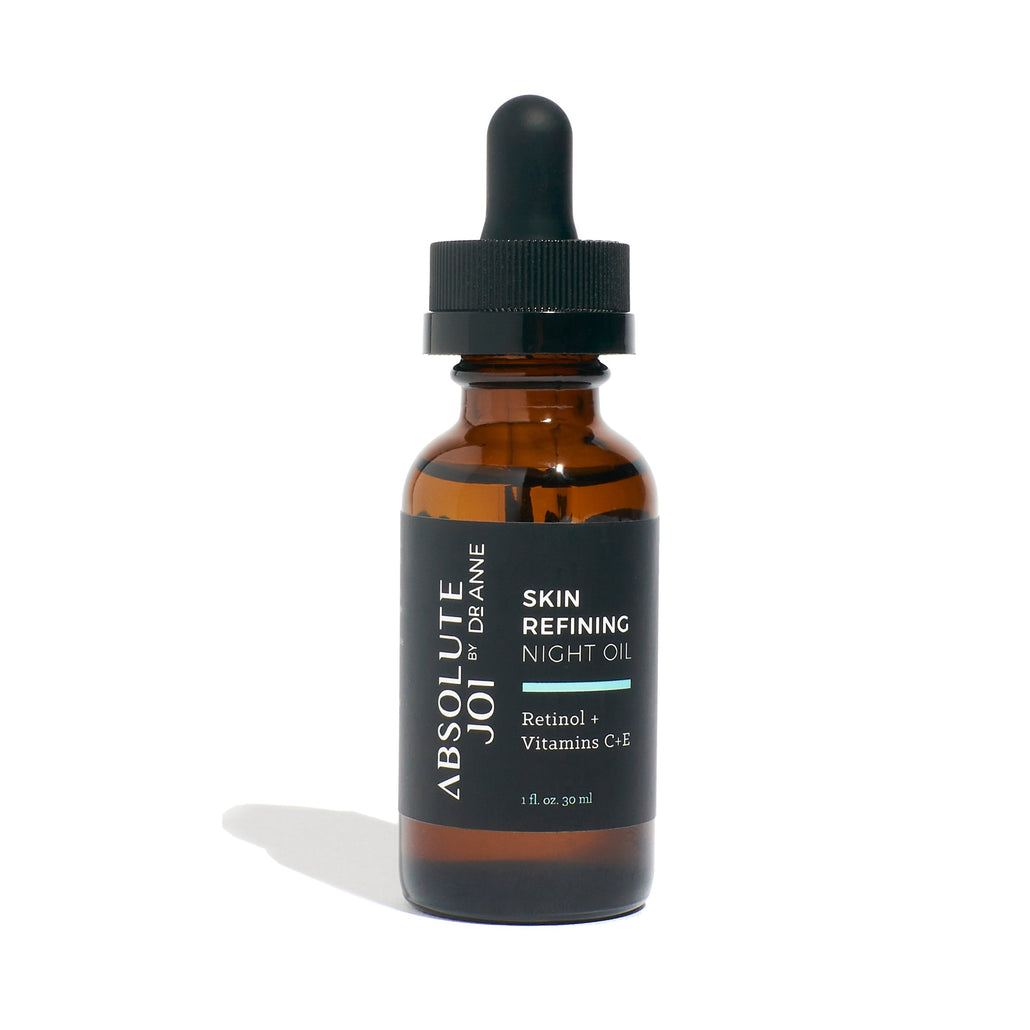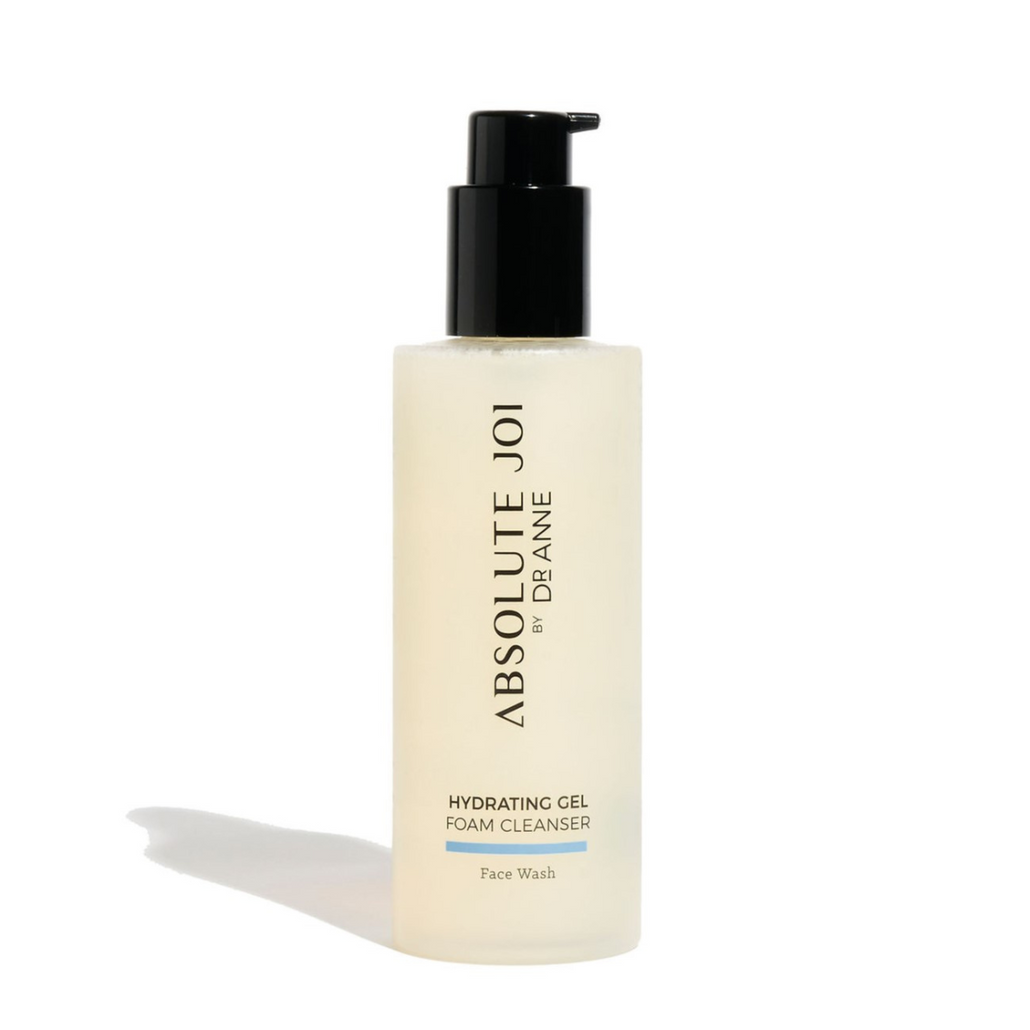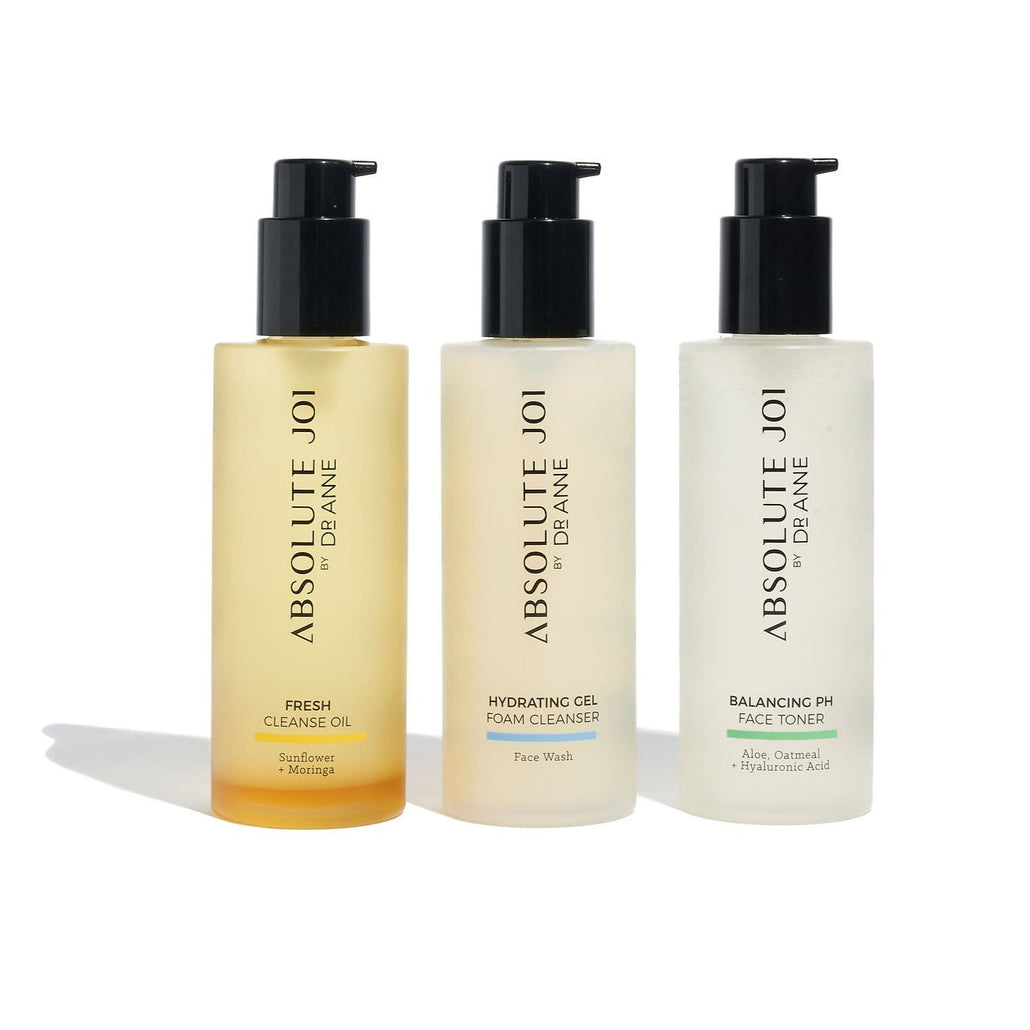How to Repair Your Skin Barrier


In This Article →
In This Article
Your skin barrier is essential for skin health. It plays a vital role in protecting our bodies from external factors, such as bacteria, environmental damage, and helps maintain proper body hydration. However, various factors can damage your skin barrier, leading to skin issues like dryness, sensitivity, and inflammation. When thinking about skincare routines and products, we often overlook the potential harm they can have on our skin barrier. I was guilty of that and had to learn the hard way. If you’re like me and you’ve already damaged your skin barrier, I’m happy to share how I got my skin back to a healthier state. Looking for answers? You’ve come to the right place!
Last year, I switched up my skincare routine and added more exfoliating acids, but after a couple of weeks of the new routine my skin had a terrible reaction. I woke up one morning with incredibly painful patches of skin everywhere on my face. It was like being in a nightmare - no matter how much moisturizer I applied, my skin only got worse. These patches of sore skin kept popping up everywhere for three days straight, and I had no idea what the problem was.
As my skin was getting worse, I realized it was probably my new skincare routine that was causing the problem. I was trying to add exfoliation to my skin care routine and had switched to a salicylic acid based cleanser while also switching to an exfoliating glycolic toner from my normal hydrating toner. Like a lot of people who are trying too many products, I essentially damaged my skin by over use of chemical exfoliators. I wanted to use an exfoliating cleanser and toner to even out my skin tone, but instead ended up with patches of dry, irritated, flaking skin.
I immediately dropped the exfoliators, but now had the challenge of restoring my damaged skin barrier. So instead of focusing on evening out my tone, I pivoted the strategy for my skincare routine, and after a couple of months, my skin was able to return back to normal – and ultimately evened out, which is what I wanted in the first place!
So, how did I do this?
It started with the realization I had damaged my skin barrier and needed to make that my top skincare priority. Here’s how I did it.

What is the Skin Barrier?
Before diving into the repair process, I needed to understand the crucial role of the skin barrier. The outermost layer of the skin, known as the stratum corneum, serves as a shield to prevent water loss and protect against irritants. It is a complex structure consisting of tightly packed skin cells that rise to the top layer of skin and slough off, along with lipids, and other natural moisturizing factors.
On the skin surface is the acid mantle. This is a thin layer of oil and sweat that creates an acidic, low pH on the skin surface to help fight bacteria. These components work together to form a barrier that keeps the skin hydrated and shields it from external aggressors.
Imagine your skin barrier as a fortress, with the stratum corneum acting as the sturdy walls and the acid mantle as a layer of oil that makes it hard to attach. Together, they defend against harmful bacteria, pollutants, and UV radiation, ensuring that your skin remains healthy and radiant.

What is the Skin Barrier?
Before diving into the repair process, I needed to understand the crucial role of the skin barrier. The outermost layer of the skin, known as the stratum corneum, serves as a shield to prevent water loss and protect against irritants. It is a complex structure consisting of tightly packed skin cells that rise to the top layer of skin and slough off, along with lipids, and other natural moisturizing factors.
On the skin surface is the acid mantle. This is a thin layer of oil and sweat that creates an acidic, low pH on the skin surface to help fight bacteria. These components work together to form a barrier that keeps the skin hydrated and shields it from external aggressors.
Imagine your skin barrier as a fortress, with the stratum corneum acting as the sturdy walls and the acid mantle as a layer of oil that makes it hard to attach. Together, they defend against harmful bacteria, pollutants, and UV radiation, ensuring that your skin remains healthy and radiant.
The Role of the Skin Barrier
The skin barrier acts as a defense system, keeping harmful substances out while allowing beneficial nutrients to penetrate the skin. It also helps maintain suppleness and elasticity, giving the skin a youthful appearance. When the barrier is compromised, various skin issues can arise.
One of the key functions of the skin barrier is to regulate transepidermal water loss (TEWL). TEWL refers to the evaporation of water from the skin's surface. A healthy barrier minimizes TEWL, keeping the skin adequately hydrated. However, when the barrier is damaged, TEWL increases, leading to dryness, tightness, and discomfort.
Furthermore, the skin barrier plays a vital role in maintaining the skin's pH balance. The pH level refers to the acidity or alkalinity of the skin. A balanced pH is crucial for optimal skin health. When the barrier is intact, it helps regulate the skin's pH, preventing it from becoming too acidic or alkaline. However, a compromised barrier can disrupt this balance, making the skin more susceptible to inflammation and irritation.


What Does a Damaged Skin Barrier Look Like?
Recognizing the signs of a damaged skin barrier is vital to initiate timely repair. When the skin barrier is compromised, it loses its ability to retain moisture effectively. This leads to dryness and dehydration, making the skin feel rough and tight. The lack of moisture also disrupts the skin's natural exfoliation process, resulting in flakiness and a dull complexion. Common symptoms include redness, dryness, flakiness, itchiness, and increased sensitivity.
A compromised skin barrier can also exacerbate existing skin conditions. For people with eczema, the barrier's impairment weakens the skin's natural defense against allergens and irritants, leading to more frequent and severe flare-ups. Similarly, people with rosacea may experience heightened redness and flushing when the barrier is compromised. As you can see in the image, my skin was red, irritated, and flaky.
Once I understood the signs and causes of a damaged skin barrier, the next step was to create a plan for effective repair and maintenance.
The Importance of a Healthy Skin Barrier
A healthy skin barrier is not only essential for overall skin health and appearance, but it also plays a pivotal role in various aspects of skin care. Understanding the importance of maintaining a healthy skin barrier helped me get back to my normal complexion.
When it comes to aging, the condition of your skin barrier is crucial. As we age, the skin naturally undergoes changes, and one of them is the weakening of the skin barrier. This weakening can lead to increased moisture loss and a decrease in collagen production, which are key factors in the development of sagging, fine lines, and wrinkles. By restoring and maintaining a healthy skin barrier, you can effectively slow down the aging process and retain a more youthful appearance.
But the benefits of a healthy skin barrier don't stop there. It also plays a significant role in managing acne-prone skin. Contrary to popular belief, people with acne-prone skin require a robust skin barrier and overstripping skin to remove all your oils can make acnes worse. When the skin barrier is compromised, it becomes more susceptible to various issues, including increased sebum production, bacterial infiltration, and inflammation. These factors can exacerbate acne breakouts and make it even more challenging to achieve clear and healthy-looking skin. By repairing and strengthening the skin barrier, people with acne-prone skin can experience a reduction in blemishes and an overall improvement in their skin's appearance.

So how can you ensure that your skin barrier remains healthy? One of the key steps is to maintain a consistent skincare routine that focuses on nourishing and protecting the skin barrier. This includes using gentle cleansers that won't strip away the skin's natural oils, incorporating moisturizers that provide hydration and support the skin's barrier function, and using sunscreen to shield the skin from harmful UV rays.
In addition to a proper skincare routine, there are other lifestyle factors that can contribute to a healthy skin barrier. These include eating a balanced diet rich in antioxidants and essential nutrients, staying hydrated by drinking an adequate amount of water, getting enough sleep to allow your skin to regenerate and repair itself, and managing stress levels as chronic stress can negatively impact the skin barrier.
By prioritizing the health of your skin barrier, you can enjoy the benefits of improved skin texture, reduced signs of aging, and a clearer complexion. Remember, a healthy skin barrier is the foundation for beautiful and radiant skin.
How I Repaired My Skin Barrier
Identify the Cause
The first step for repairing my skin barrier was to identify what caused it. Reflect on your current skincare routine, lifestyle habits, and potential environmental factors that may have contributed to the damage. This assessment will help determine the first step for repair, which is to stop the factor that’s causing it.
When examining your skincare routine, consider the products you use on a daily basis. Are they too harsh or abrasive? Are you over-exfoliating or using excessively harsh acids (which is what I did). Do your products contain any potential irritants such as fragrances? Or do they have ingredients you are allergic to? Are they alkaline or a high pH, which disrupts the acid mantle. It's important to be mindful of the ingredients in your skincare products, as certain chemicals can disrupt the delicate balance of your skin barrier.
Additionally, take into account your lifestyle habits that may be impacting your skin barrier. Are you frequently exposed to environmental pollutants or harsh weather conditions? Do you engage in activities that cause excessive sweating or friction on the skin? These factors can also contribute to the weakening of your skin barrier.
By thoroughly assessing potential causes, you can start to heal by avoiding the specific factors that led to the damage of your skin barrier.
Choose the Right Products
Selecting appropriate skincare products is crucial for repairing the skin barrier. Look for mild, pH-balanced cleansers that do not strip away natural oils. If your cleanser leaves you with that “squeaky clean” feeling, it just stripped away your acid mantle, leaving your skin vulnerable. You want gentle cleansers that effectively remove dirt and impurities without causing further damage to your skin barrier.
Take a step back from exfoliating. If you are using exfoliating acids every day, dial it back to 1-2 times per week. Also, consider exfoliating with gentler fruit acids or lactic acid, which is more hydrating for skin.
Incorporate moisturizers containing ingredients like ceramides, hyaluronic acid, and niacinamide, which aid in hydration and moisturization and help repair and strengthen the barrier. Ceramides, in particular, were really helpful for me and play a vital role in maintaining the integrity of the skin barrier by forming a protective layer that prevents moisture loss and shields the skin from external aggressors.
Additionally, consider adding a face oil or balm to your skin at night to lock in moisture and provide an extra layer of protection. Look for products with jojoba and other natural oils. These emollient-rich products can help replenish the skin's natural oils, promoting barrier repair and preventing further moisture loss.
While this approach worked for me, it's important to note that everyone's skin is unique, and what works for one person may not work for another. It may require some trial and error to find the right combination of products that effectively repair your skin barrier, but when your skin is feeling healthy and balanced, you will know you’ve created the right routine.
The Role of Diet and Hydration
Your general health shows on your skin, so a healthy skin barrier requires nourishment both internally and externally. While skincare products play a significant role in repair, they can’t be effective if you ignore the importance of diet and hydration.
Make sure your diet includes a lot of plant-based foods that are rich in antioxidants, vitamins, and omega-3 fatty acids. These nutrients help support the skin's natural repair processes and promote overall skin health. The good news is a diet with lots of fruits, vegetables, fish, nuts, and seeds is great for overall health while providing your skin with the essential nutrients it needs.
Hydration is key when it comes to maintaining a healthy skin barrier. Drink an adequate amount of water throughout the day to maintain optimal skin hydration levels. Proper hydration helps to plump the skin, improve elasticity, and support the barrier function. Consider incorporating hydrating foods, such as watermelon, cucumbers, and citrus fruits, into your diet to further boost your skin's hydration.
By paying attention to both your internal and external nourishment, you can provide your skin with the necessary tools to repair and strengthen its barrier, resulting in a healthier and more resilient complexion.
My Skin Barrier Repair Routine
Now that my skin is back in shape, I learned that a simple approach is the best approach for my skin health. My current daily skincare routine is as follows:
I gently double cleanse with an oil cleanser followed by a gel cleanser. I used an alcohol free aloe-based toner, which balanced my skin pH. Then I use a moisturizer with sunscreen in the morning and a nourishing night oil before bed.
I also learned my skin is sensitive and I avoid common skin irritants. This includes harsh cleansers, alcohol-based toners, physical exfoliants and products containing fragrances or essential oils.

Could it Be Something Else? When to Seek Professional Help
If you consistently experience skin issues despite following a proper skincare routine, consider seeking professional help. A dermatologist, esthetician or other skincare professional can assess your skin and recommend suitable treatments or prescribe medication, if necessary.
Also, some skincare treatments should be left to the professionals who can provide personalized guidance and treatments to repair and maintain your skin barrier. And if you want to exfoliate, they can recommend clinical-strength skincare products, perform in-office treatments like chemical peels or microdermabrasion, and offer expert advice on managing your skin.
If you're struggling to get your skin barrier back into a healthier state, it's time to switch to a skincare routine with a gentler approach. Restore your skin with with our Ultimate Double Cleansing Oil kit. This kit is formulated to hydrate, with an oil cleanser infused with nourishing Sunflower and Moringa oils, followed by our gentle, pH-balancing Hydrating Gel Foam Cleanser. Complete the process with our Balancing pH toner, providing the ideal canvas for your subsequent skincare routine.
My biggest lesson is that “less is more” when it comes to skin care and I learned that repairing and maintaining a healthy skin barrier is crucial for skin health and overall well-being. By understanding the role of the skin barrier, identifying signs of damage, and implementing a step-by-step repair process, I was able to achieve the even-toned and radiant complexion I was looking for.



AbsoluteJOI Skincare
by Dr. Anne
AbsoluteJOI is a physician-founded skin care brand with a science-based approach to the needs of people over 35 with all skin types and tones. Developed by physician researcher, Dr. Anne Beal, our products are formulated and tested for sensitive skin, while addressing dyspigmentation, the first sign of aging for many people. Our philosophy is not to focus on anti-aging, but to celebrate all ages and stages and to help our customers age beautifully, while celebrating the confidence and wisdom they’ve gained with time.
Each product combines natural and clinically effective ingredients for healthy skin. We use NO parabens, phthalates, sulphates, or skin bleach. And we use no perfumes or dyes to offer pure and clean products good for all skin types, including sensitive skin.









